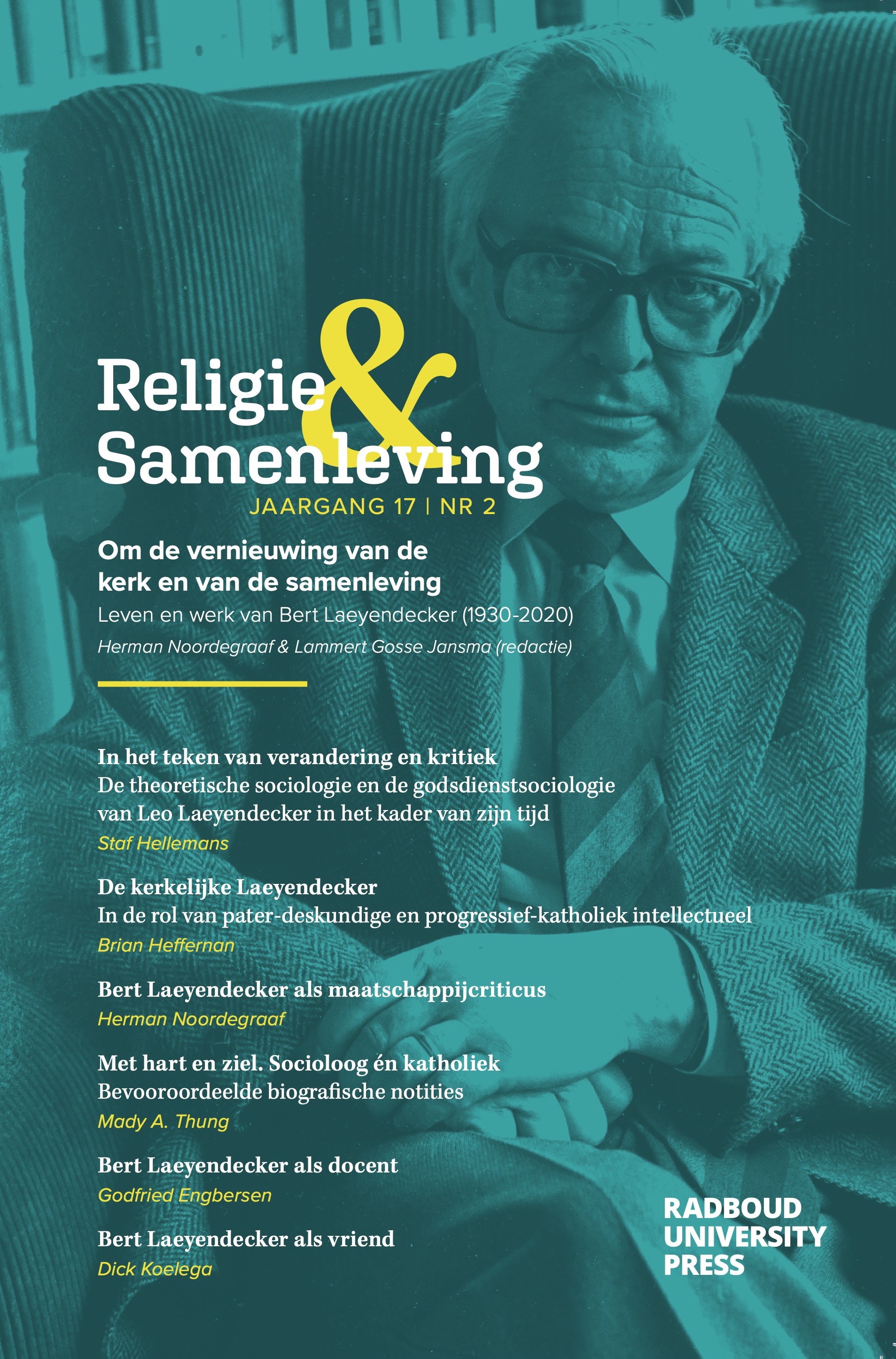In het teken van verandering en kritiek
De theoretische sociologie en de godsdienstsociologie van Leo Laeyendecker in het kader van zijn tijd
DOI:
https://doi.org/10.54195/RS.12437Samenvatting
The work of the Dutch sociologist Leo Laeyendecker (1930-2020), centered as it is on the critical analysis of change, can be seen as exemplary for the generation which came to dominate sociology for several decades from the 1960s onwards. Laeyendecker wrote extensively on many topics, mostly in Dutch. In his theoretical sociology, he pleaded for theories of conflict and social change and concluded that a genuine pluralism of theories and paradigms was unavoidable – see, in particular, Sociale Verandering (1984a). In his essayistic work, he advocated a critical theory of modernity and modernization. In his sociology of religion, especially in his early major work Religie en conflict (1967a), he stressed the need for intra-church pluralism and the internal regulation of conflicts between divergent ecclesiastical groups. Later on, while this did not happen in the Catholic church, he sharply criticized its authoritarian, ‘anti-modern’ stance, which, according to Laeyendecker, is responsible for the steep decline of the Church and the alienation of the Catholic rank and file – see here, among others, Om de beheersing van het charisma (1993). In a time of flowering sociology, Laeyendecker believed in its power to disclose the inner dynamics of society and the Catholic church and to help change them for the better.




